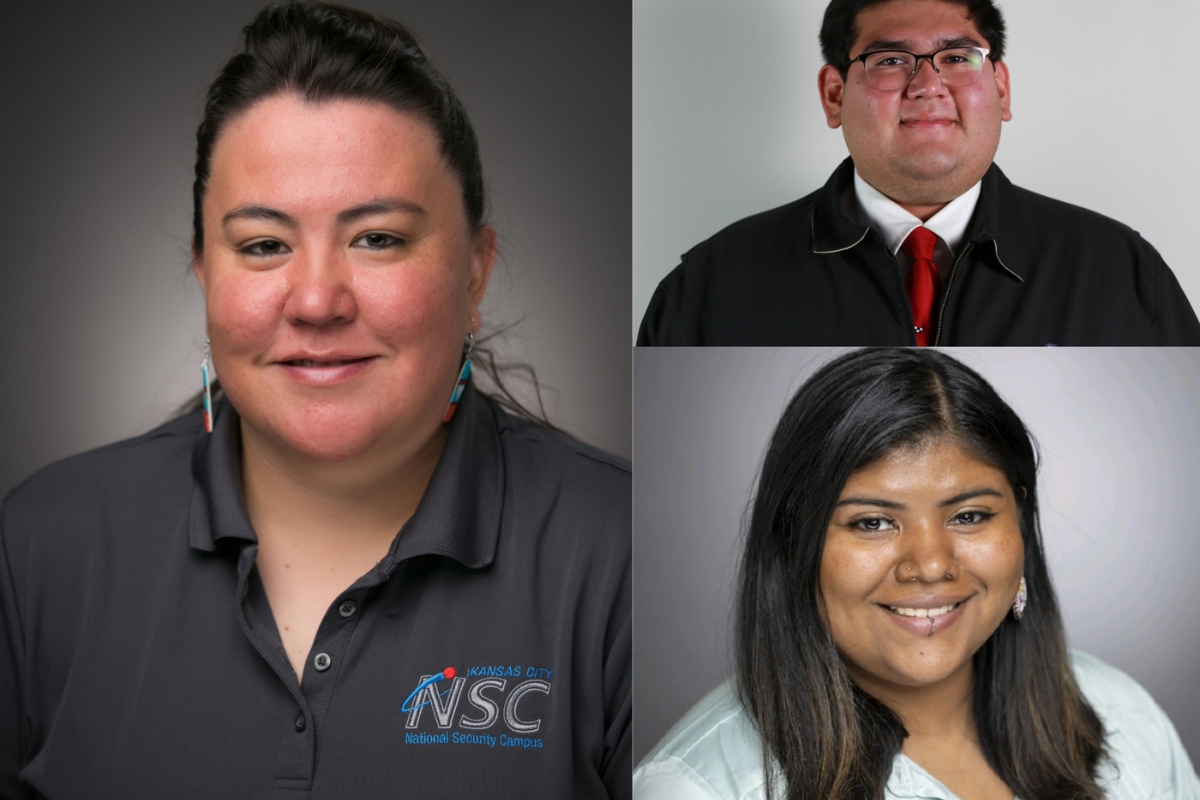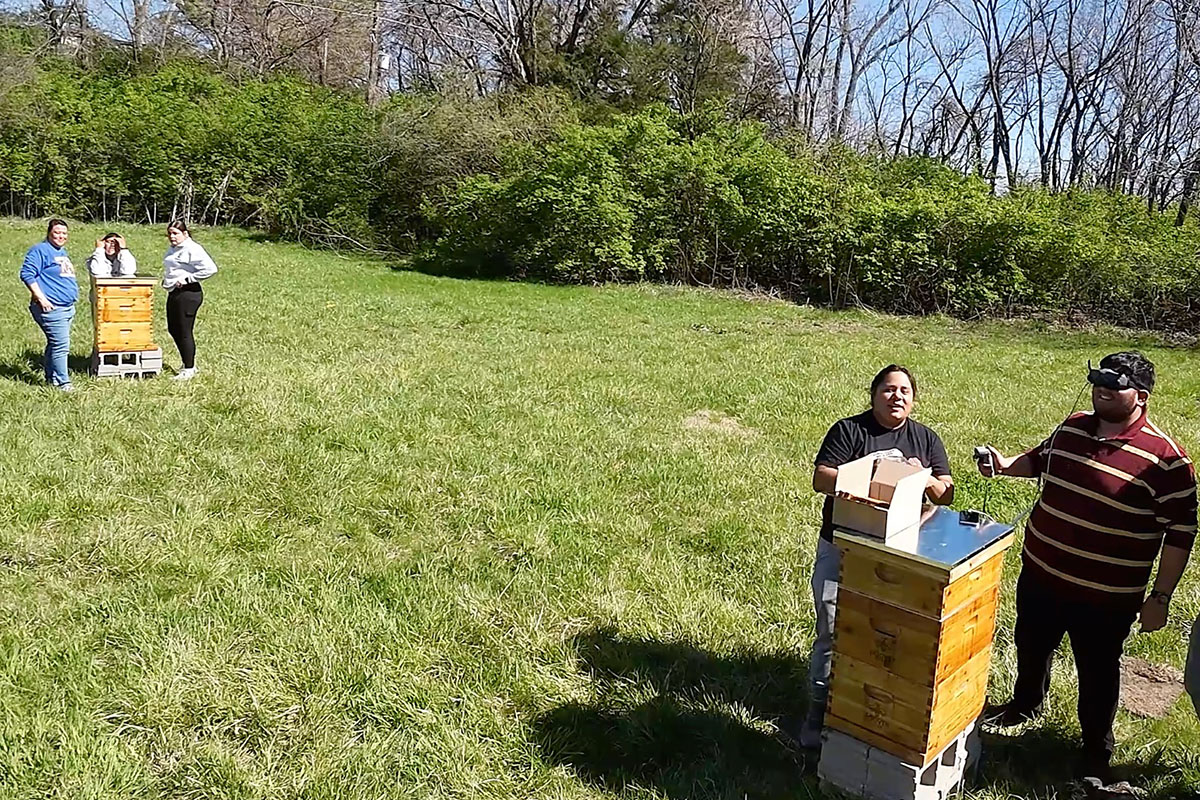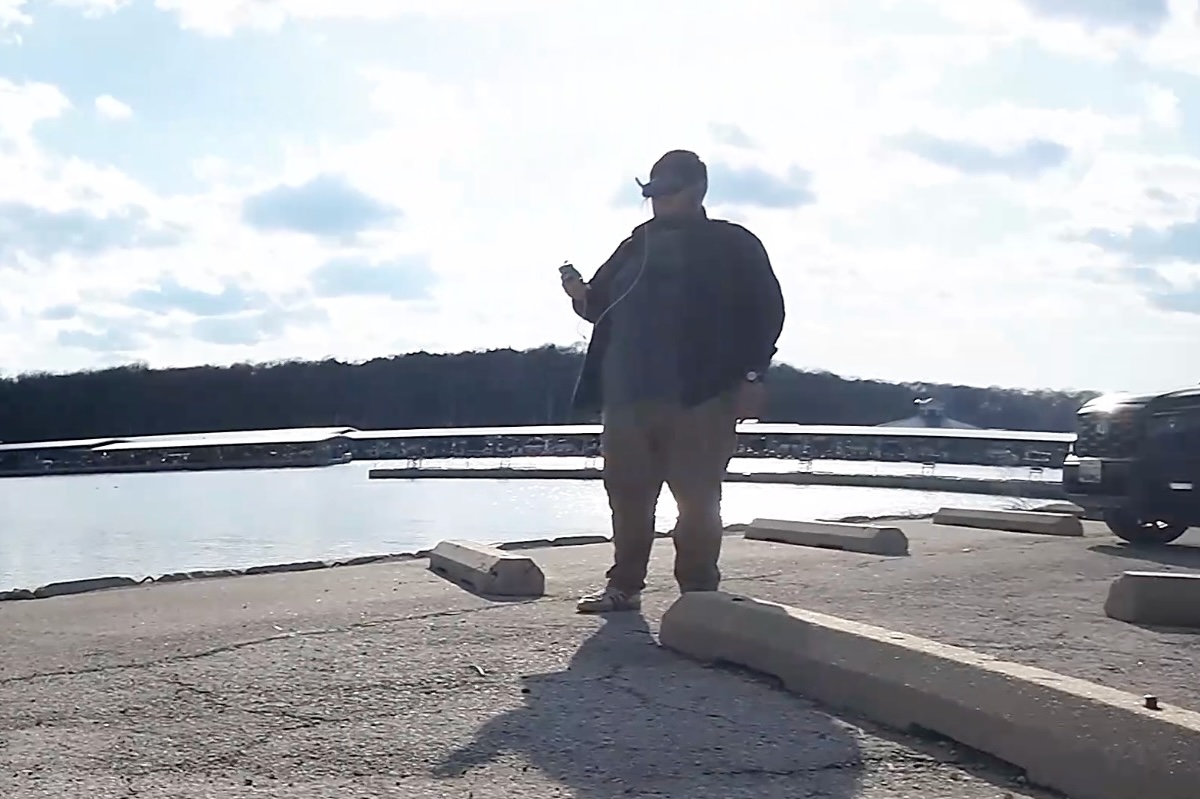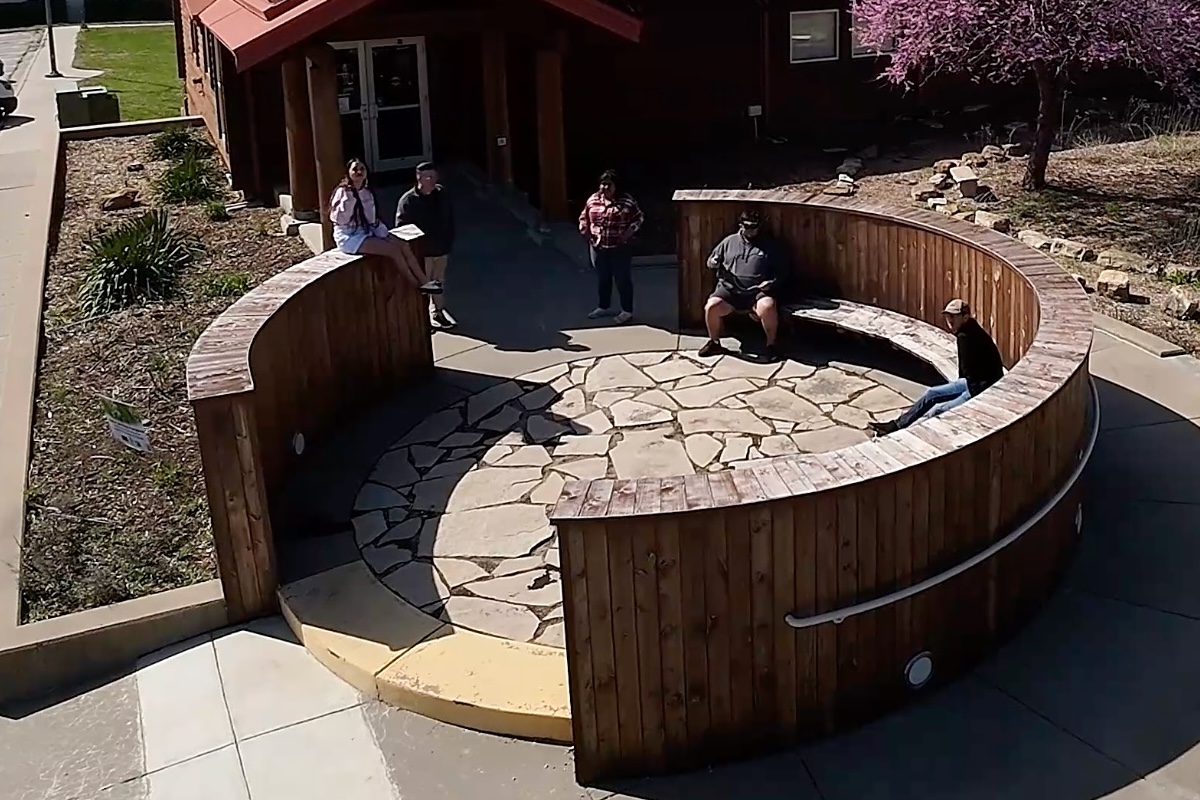Haskell Indian Nations University Works with NCITE to Develop Drone Program to Prevent Terrorism on Tribal Land
- published: 2024/10/04
- contact: NCITE Communications
- phone: 402-554-6423
- email: ncite@unomaha.edu
- search keywords:
- drones
- training program
- tribal lands
By Penjani Banda and Eva Burklund (NCITE Student Communications Specialists)
This August, a team of researchers logged onto a virtual meeting and began to present a summer’s worth of work. Their presentation, on a project that aims to establish an innovative new drone pilot program, could have focused on the technology.
But to establish the need for such a program, the team had to begin with a complicated topic: the relationship between Native American communities and the United States.
This summer, a team from Haskell Indian Nations University in Lawrence, Kansas, joined NCITE as part of the U.S. Department of Homeland Security (DHS) Science and Technology Directorate (S&T) Summer Research Team program. The 10-week program pairs early-career faculty and student research teams from minority-serving institutions and tribal colleges and universities with the Department of Homeland Security’s academic Centers of Excellence where they collaborate on research projects to support homeland security.
Throughout the summer, the team from Haskell worked on a project that would develop a drone piloting program to train public safety officers to use drones to prevent crime and domestic terrorism – including drug trafficking, bomb threats, and hate crimes – on tribal land.
“Historically, Native Americans have been among the highest targets for hate crimes, but underreporting of these crimes has hindered the ability of indigenous communities to protect tribe members, and lowered the visibility of crimes happening on reservations,” said Jessica Burghart, Ph.D., business professor at Haskell and faculty research advisor for the team.
'Create Trust Where We Can'
The Haskell team included Burghart, a member of the Prairie Band Potawatomi Nation, and two students: Aziza Smith, a business administration major and member of the Eastern Shoshone Tribe, and Andrew Noline, an environmental science major and member of the San Carlos Apache Tribe.
To kick off their presentation, the team offered a timeline covering the violent displacement that indigenous people faced and resisted throughout the 1800s, forced assimilation of Native Americans through boarding schools around the turn of the 20th century, and, finally, the passing of policies respecting tribes’ self-determination during the 1960s through the 1980s.
This brief history, along with an explanation of continued lack of funding and visibility, offered context for the capacity for crime prevention and response on reservations, including the issue of addressing the high rates of hate crimes and domestic terrorism committed against Native Americans.
“Given that the historical background of Native Americans and the federal government hasn't been that great, we approached this project with a mindset of trying to help mend that relationship and create trust where we can,” Smith said. “We think it's important to have Native representatives actually addressing Native issues because it’s sort of a liaison role between tribes and the federal government.”
It’s a sentiment that aligns with the goals of the Summer Research Team (SRT) program, which aims to strengthen scientific leadership at minority-serving institutions through research that supports DHS’s mission, said Greg Simmons, program manager for minority-serving institutions and workforce development at DHS.
Whatever (tribal college or university) you go to, you will find that there are brilliant minds there ... And I hope that our project encourages and motivates them to work with their tribes in identifying issues and resolving them.
“The SRT program is one of the tools that we use within (DHS’s) Office of University Programs to relieve any barriers that minority-serving institutions (MSIs) might have in participating in university-based research,” Simmons said. “The MSI voices are important voices to hear, and so the SRT program is one of those mechanisms to do that.”
The program is especially concerned with supporting early-career research faculty in increasing their research, writing, and publishing experience so they can be poised to further contribute to homeland security-related research.
“We need multivariate ways of looking at problems,” Simmons said. “If you can involve the communities being impacted by all of these things, you have better outcomes.”
Bringing voices from tribal institutions into the program is critical to this mission, Simmons said.
“There’s buy-in from the tribal college ... because there’s a lot of reasons that they might not trust working with the government, but you have people from NCITE who are willing to lean in and bring those folks on board which is so important,” he said. “I’m just so happy. Dr. (Jessica) Burghart from Haskell and Dr. (Gina) Ligon are just amazing.”
Every year, NCITE supports SRTs by providing funding, skill development and research opportunities for students and faculty members. In addition to Haskell, NCITE worked with SRTs from two other schools in the summer of 2024: Hampton University and Texas A&M University – San Antonio.
Identifying and Addressing Issues
Burghart said the drone project holds great significance given that tribes are a historically vulnerable population for threats to community members and tribal lands.
“I always feel like government doesn't seem to ask tribal nations about their opinion on things, and even though they are willing to protect and serve their nation, they are (often) a missing voice when things happen,” she said.
Burghart said her business background gives her a unique perspective on counterterrorism efforts.
“Business is versatile, and a business professional is always great at creating an innovative solution in whatever field they are working in,” she said.
Prior to becoming a business professor, Burghart worked for a tribal government contractor, which is how she got acquainted with and interested in federal work.
“Whatever (tribal college or university) you go to, you will find that there are brilliant minds there who are all connected to their tribes in some way or another,” Burghart said. “And I hope that our project encourages and motivates them to work with their tribes in identifying issues and resolving them.”
While presenting their work on the drone pilot program in August, the Haskell team highlighted that Native Americans are targeted by domestic terrorism and transnational organizations due to living in isolated areas, a lack of public safety resources, and underdeveloped tribal policies that do not protect members.
The team also recognized government agencies such as the Federal Bureau of Investigation (FBI), Department of Justice (DOJ), and DHS which, through organizations such as NCITE, provide training and funding opportunities for tribal nations and tribal colleges and universities to prevent domestic terrorism.
“Working with NCITE has given us the ability to have space and funding to create solutions that address issues facing tribes,” Burghart said.
Smith, who hopes to pursue a future law career, said working on this project highlighted the lack of visibility for threats to Native tribes and strengthened her resolve to pursue a legal career that specifically serves this population.
“Getting to work on this project and finding that there is almost nothing out there for the specific area we were in was really eye-opening for me and illustrated just how much work there is to be done in the legal areas with federal Indian law,” she said.
Noline, an aerospace engineering and technology enthusiast and member of American Indian Science and Engineering Society (AISES), said working on the project offers him the chance to contribute to the safety of the people on reservations.
“We just hope this opens up more opportunities for tribes to get their voices in matters that really affect them,” he said.



